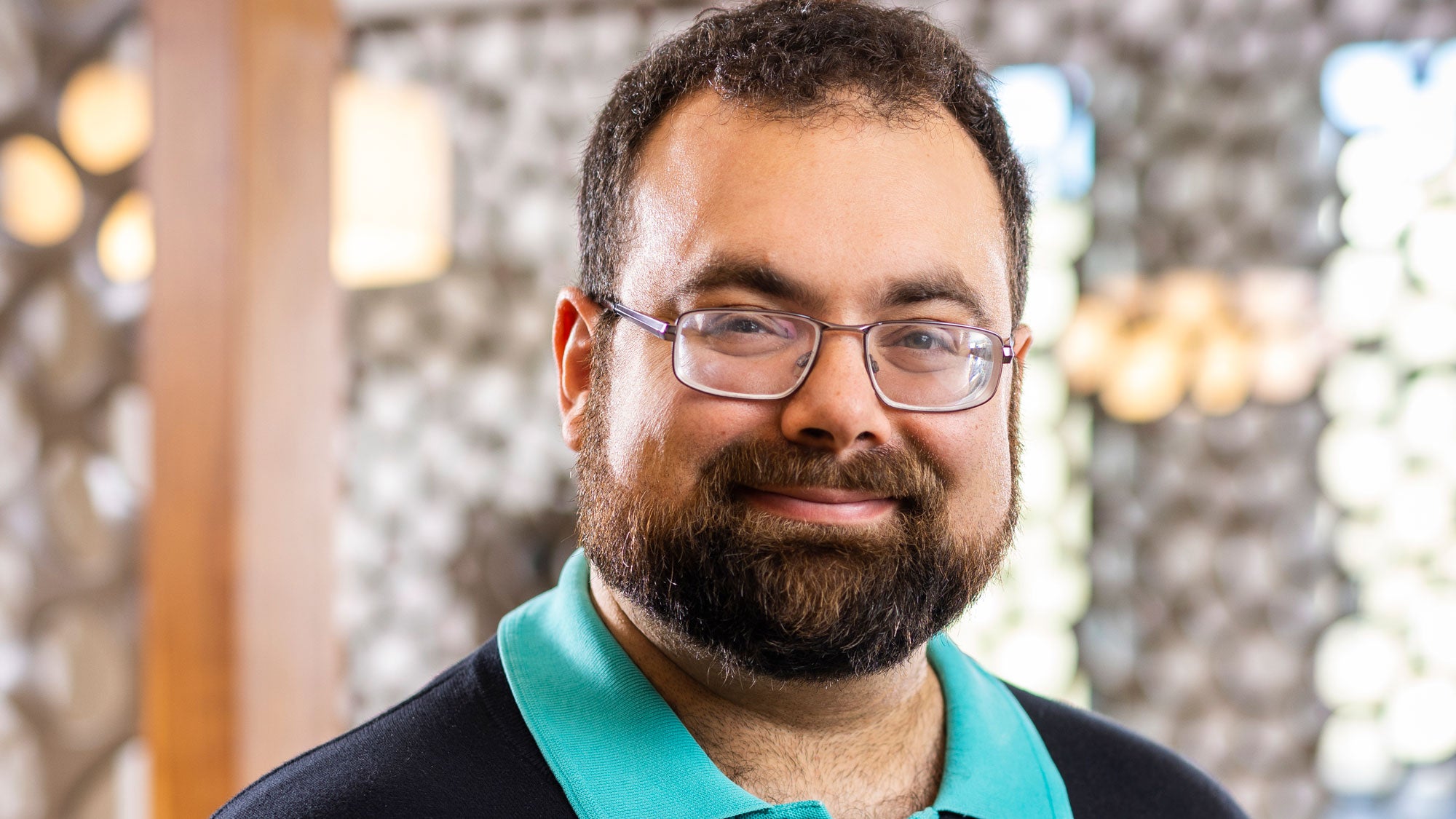A research agenda to improve the lives of autistic people

According to a Centers for Disease Control and Prevention (CDC) report released April 17, 1 in 31 U.S. children has autism, up from 1 in 150 in 2000. In response to these findings, Robert F. Kennedy Jr., secretary of the Department of Health and Human Services, announced that he would be launching a major effort to identify the cause of what he called an epidemic.
Ari Ne’eman, assistant professor of health policy and management at Harvard T.H. Chan School of Public Health and a longtime national expert on autism and disability policy, recently spoke about the report and the secretary’s plans, and his own priorities for a research agenda that would better meet the needs of autistic people.
Q: What is your interpretation of the CDC report?
A: Contrary to Secretary Kennedy’s remarks, there is not and never has been an autism epidemic—that premise has long been rejected by a large body of research. What’s driving the higher numbers are a few things: First, there has been a process of diagnostic substitution. We have a more complex and nuanced understanding of diagnosis than we did in prior generations. Second, in the 1990s, the diagnostic criteria for autism were expanded.
In 1963, when the Secretary’s uncle, President Kennedy, addressed the nation on intellectual disability—then called mental retardation—he quoted an incidence statistic of 3 percent, well above what anyone claims for that diagnosis today. Over the years, people who would have received an intellectual disability, learning disability, or mental illness diagnosis, or in some cases no diagnosis at all, have been shifted into an autism diagnosis. Finally, we’re also seeing better identification of people from racial and ethnic minority groups that have historically gone underdiagnosed, which the CDC noted in its report.
As an autistic person, I would say that recognizing the broad scope of the autism spectrum is a good thing. The history of the autism diagnosis has always included a fairly broad range of impairment, even before the 1990s diagnostic expansion. There’s an obligation to make sure we don’t lose sight of the needs of people with the most severe impairment in how we allocate resources, but the diagnosis itself is not a scarce commodity.
And regardless of how impaired someone is, it’s important to maintain a focus on inclusion in the broader society, which things like Medicaid home and community-based services are absolutely crucial for. Keeping the emphasis on that right now is important as Congress considers hundreds of billions of dollars in Medicaid cuts that could devastate those services. We also need to call attention to proposals to eliminate Developmental Disabilities Act programs—first created by Secretary Kennedy’s family over a half-century ago—which provides vital funding for crucial rights protection, services-planning, and research work.
Support Harvard Chan School
Every gift contributes to our mission of building a world where everyone can thrive. To learn more about how you can support the Department of Health Policy and Management, please contact Drew Davis O’Brien at dobrien@hsph.harvard.edu.
Q: What concerns do you have about Secretary Kennedy’s autism research agenda? Do you see any opportunities in the focus he is putting on this issue?
A: Autism research needed a big shake up—but in the exact opposite direction from what Secretary Kennedy is proposing. His focus on causation is deeply out of line with the priorities of both autistic people and families. In 2020, the United States spent $418 million on autism research. Of that, only about 8.5% went toward research on improving the quality of services and supports for autistic people. And only about 4.5% went toward research on the needs of adults. I’m not saying that there isn’t a role for genetic research or research on causation, but it’s been very heavily out of balance. Autism research shouldn’t be seen as a geneticists’ full employment act—it needs to be better aligned with the things that autistic people and families care most about.
Neither the average autistic person nor the average family member wakes up wondering if scientists have found a better biomarker or built a better mouse model. They wake up wondering if they are going to get answers that will help empower someone to communicate or live independently or be included in the same classroom or workplace with their peers.
One of the other things that’s so concerning about the Secretary’s comments is that they may empower people selling pseudo-scientific therapies, taking thousands or tens of thousands of dollars out of the hands of desperate parents. This can also serve to place autistic people of all kinds at risk. A lot of really harmful interventions are predicated on the idea that there is a normal non-autistic person hiding underneath an autistic person. Some of these interventions are tied into anti-vaccine ideology that’s been conclusively disproven. Others are behavioral but place a disturbingly large emphasis on the markers of typical appearance—such as increasing eye contact or the reduction of hand flapping or other “stimming”—that don’t benefit autistic people and impose harmful passing demands. All of this puts autistic people at risk and contributes to an environment that is very exploitative of both autistic people and family members.
I don’t have high hopes for the ill-advised direction Secretary Kennedy is taking autism research and policy. But as we push back on his remarks, I think this is an opportunity to highlight the need for change—not just going back to where we were a year ago. We need a research and service-provision agenda that’s focused on trying to empower autistic people of all kinds to succeed as who they are, not forcing them to be something they’re not. Autistic people—like all people with disabilities and frankly all Americans—deserve better than what they’ve received in the past.
Q: If you were able to advise on the future direction of the autism research agenda, what would your top priorities be?
A: Number one is communication. The single greatest challenge that autistic people and their family members experience is difficulties with communication. I think we need to prioritize the needs of non-speaking autistic people. Research around biology and genetics is a part of that, but it can’t be the only part. For example, we also need to be investing in technology that helps autistic people with limited or no speech to communicate, and better educational pedagogy to help people make themselves understood.
We also need to improve and expand research into autistic adults, particularly with respect to experiences of aging and addressing barriers to employment and independent living. Research on improving supported employment and supported living services for people with the most complex needs could be very powerful.
But frankly, I think the best way we can improve the lives of autistic people is by investing and improving the lives of people with developmental disabilities writ large. In many respects, I think autistic people and their families are poorly served by what I would call autism exceptionalism, the tendency to look at autism as something special and separate from other developmental disabilities.
There’s a particularly dire need to improve the quality of health care for all people with developmental disabilities, who experience severe health disparities relative to the general population. To address this problem, I think taking a broader developmental disability approach would be helpful. Autism isn’t as special as some people seem to think.


